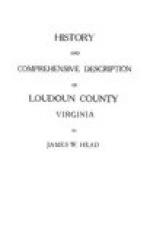But the terms of peace had scarcely been signed when the great popular heart of the State swelled with generous and magnanimous rivalry in an effort to repair the past. The soldiers who had fought and striven under the successful banners of the Union came back with no bitterness in their hearts, with no taunts on their lips. The war-worn exiles of the Southern army, long before formal permission had been given by either the State or Federal Government, were summoned home and received with open arms and affectionate greetings by both the Union and States-rights men. The people of the entire State seemed to remember with sorrowful pride the noble men who had died gallantly in the ranks of either army. Over their faults was thrown the mantle of the sweet and soothing charities of the soldier’s grave; and, on all sides, there was manifested unstinted admiration for the valor with which they had borne the dangers and privations of the war.
RECONSTRUCTION.
After the Surrender.
If the era of Reconstruction which followed the tragic drama of civil war lacked the fierce element of bloodshed, it was none the less painful and protracted. It was a gloomy period through which the people of Loudoun, in common with other communities of the Southland, were compelled to pass, and there was no appeal and no alternative save submission.
The conditions in the South in this decade were radically different from those in the North. As a result of the war, the markets of the South were destroyed, investments in slaves were lost, and land improvements deteriorated. The close of the war found the planters bankrupt, their credit destroyed, and agriculture and all business paralyzed by lack of working capital. Vast areas of land went out of cultivation, the reported acreage of farm land in all the Southern States was less in 1870 than in 1860, and the total and average values of land everywhere decreased.
The paroled Confederate soldier had returned to his ruined farm and set to work to save his family from extreme want. For him the war had decided two questions—the abolition of slavery, and destruction of State sovereignty. Further than this he did not expect the political effects of the war to extend. He knew that some delay would necessarily attend the restoration of former relations with the central government, but political proscription and humiliation were not anticipated.
No one thought of further opposition to Federal authority; the results of the war were accepted in good faith, and the people meant to abide by the decision of arms. Naturally, there were no profuse expressions of love for the triumphant North, but the people in general manifested an earnest desire to leave the past behind them and to take their places and do their duty as citizens of the new Union. Many persons were disposed to attribute their defeat to the will of the Almighty. Others believed that fate, destiny, or Providence had frowned upon the South, and this state of mind made them the more ready to accept as final the results of the war.




